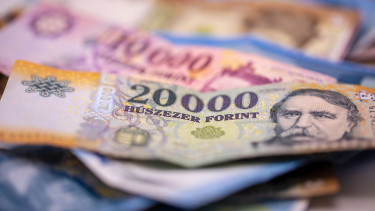Number of suspected whooping cough cases drops slightly in Hungary

We should be so lucky...
During the second week of September, the weekly number of suspected pertussis patients reached 77, below the previous week's figure (81) or this year's peak (89). The National Centre for Public Health and Pharmacy (NNGYK).confirmed the clinical diagnoses with microbiological tests in 25 cases and diagnostic tests still ongoing in the remaining patients.
Despite the positive surprise, the outlook is not rosy, with physical contacts multiplying with the start of the new school year. A fortnight ago we were expecting a further increase in the number of new suspected cases of whooping cough, and a spread of upper respiratory illnesses from physical encounters in various communities. The 37th week is the second week in a row that caused a positive surprise in this respect, but we still fear it's just a temporary respite.

The number of suspected pertussis cases reported for the 37th week brings the cumulative number to 771 this year, an outstanding figure compared to previous years when only a few cases were found in Hungary. This is strange, because the high rate of vaccination has meant that GPs have generally encountered these diseases mostly in textbooks, and very seldom in practice.

We have repeatedly discussed in our previous articles why pertussis is spreading this fast now:

Vaccine situation
There have been no updates on the vaccine situation for more than a week now. The NNGYK last issued a statement on vaccine deliveries on 13 August.
"It is now difficult for manufacturers to cope with this increased demand, as the demand for vaccines is growing not only in Hungary but also in other European countries and it is not possible to produce in larger volumes in a shorter time, said Ágnes Galgóczi, the head of epidemiology at the NNGYK, almost two weeks ago.
Two batches of 10,000 doses each of a vaccine containing the pertussis component have recently been delivered to Hungary, but all have been sold out in pharmacies already, she added on 12 Sept.
She reassured, however, that another shipment would arrive at the end of the week, with 20,000 doses of the vaccine becoming available in pharmacies from the beginning of this week.
Galgóczi stressed that the protection of newborns remains the most crucial, and therefore vaccination is recommended primarily for pregnant women, because maternal antibodies in the third trimester, passing into the newborn, protect the newborn from the development of serious illness in the first months. In addition, vaccination is also recommended for those in the family who are directly involved in the day-to-day care of the newborn.
According to the expert, the spread may be due to the increased circulation of airborne pathogens in the post-pandemic period, as was already seen last season with the influenza virus or the RSV (respiratory syncytial virus). (The NNGYK issues weekly reports on influenza infections between the 40th and 20th weeks, but the first report may not be published until the 44th week. Portfolio will follow the flu / COVID-19 / RSV developments closely, just like in the previous years.)
We have previously reported that the primary product for adults is in short supply nationally (Boostrix Polio), but there is a substitute (Adacel Polio), which is also a prescription drug. This was the product for which demand has increased spectacularly in late July, early August, unsurprisingly given the epidemiological trends, and the supply side has not been able to keep pace with this increase ever since.
What do you need to know about this vaccine?
The package leaflet for the vaccine, which is currently harder to obtain at times, states that it is used to protect against infectious diseases. The vaccine spurs the body to build up its own immunity against the bacteria or viruses that cause the disease.
This vaccine is used as a booster vaccine to enhance protection against diphtheria, tetanus, pertussis (whooping cough) and poliomyelitis (polio) in children over three years of age, adolescents and adults who have already received the full primary vaccination series.
By using the vaccine during pregnancy, protection against whooping cough is extended to the unborn baby, protecting it against the disease for the first few months of its life.
They also stress that the vaccine contains no live bacteria or viruses and cannot cause any of the infectious diseases it protects against. The vaccine should only be administered by a qualified healthcare professional and in a hospital, clinic or GP practice with the necessary equipment to deal with a possible severe hypersensitivity reaction to the vaccine, which is rare.
In many cases, production cannot keep up with the surge in demand because quantities are pre-committed on a production line and some transitional time is needed for the production process to "make room" for the extra orders (unplanned demand) that arise.
The optimised use of manufacturing capacity is therefore the reason why such temporary manufacturer "backlogs" can occur, not because the manufacturer does not want to meet the demand.
Number of cases expected to rise
A contributing factor to the increase in the number of whooping cough cases is that GPs are more likely to consider a diagnosis of pertussis in patients presenting with cough symptoms and therefore send more samples for testing.
The season for respiratory infections is the autumn-winter period, so we are sure to see an increase in the number of cases in the coming period,
said Galgóczi.
Symptoms
"Anyone who experiences a cough that lasts for weeks, possibly with a low or high fever that also lasts for weeks, can be considered for a diagnosis of whooping cough. In newborns, infants, unvaccinated and partially vaccinated children, this coughing symptom can lead to a much more severe, oxygen-deprived condition, which can be seen in the baby's mouth turning blue," she . said. She reassured, however, that the disease is caused by a bacterium that can be treated well with antibiotics.
Most vulnerable group(s)
Portfolio has previously reported in several articles that the most vulnerable group is infants. They were also the group with the highest incidence on the 37th week. In the first 37 weeks of this year, 162 of all suspected cases, practically one in five, were infants. If we look at a wider age group of children between 0 and 14 years of age, they make up 43.7% of all cases this year (337 in total), while up to 19 years the share is 54.2% (418 cases).

Cover photo (for illustration purposes only): Getty Images









